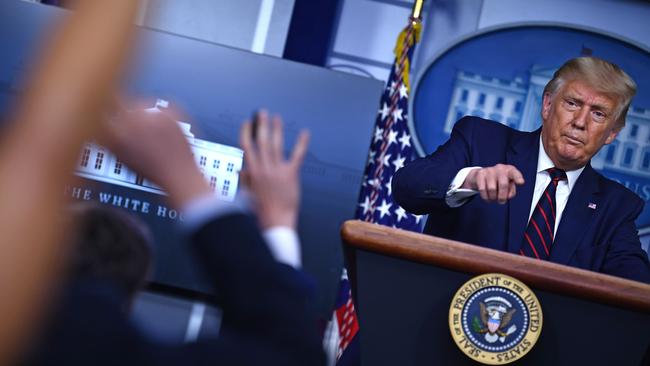
Would his re-election be good or bad?
The answer is: yes, no, maybe, perhaps, all of the above, none of the above.
Writing about Trump is one of the most intellectually and ethically challenging assignments for any journalist.
I have been studying Trump for 4½ years now. I’ve read most of the books, watched the coverage closely, debriefed dozens of his interlocutors.
I started out as a never-Trump conservative. I found the way he spoke, some of the things he said, so ridiculous and offensive I thought he couldn’t possibly be president.
For example, Trump alleged the father of his one-time Republican primary opponent, Senator Ted Cruz, was seen with Lee Harvey Oswald on the day John F Kennedy was assassinated, had questions to answer and may have been involved.
With everything Trump, you have to check the facts. This ludicrous conspiracy nonsense turned out to pivot on a nondescript photo in a scandal sheet which someone said looked like Cruz’s father. The allegation was crackers.
But Trump’s hyper-aggressive style cut through. Not only that, much else that he was saying made sense. Why was America subsidising so many rich nations’ defence? The international trade system was being scammed by China. US government should serve US interests. The economy was damaged by climate restrictions which were not matched by key US competitors.
So the Trump presidency began with me ambivalent but critical. But it soon became clear Trump was doing both good and bad things. The general thrust of his instincts was in favour of some policies I thought were right for America and beneficial for the world. I have written for years on the need for a bigger US defence budget, the utility of a lower corporate tax rate, the benefits of gas, the usefulness of fracking, the need for strong borders.
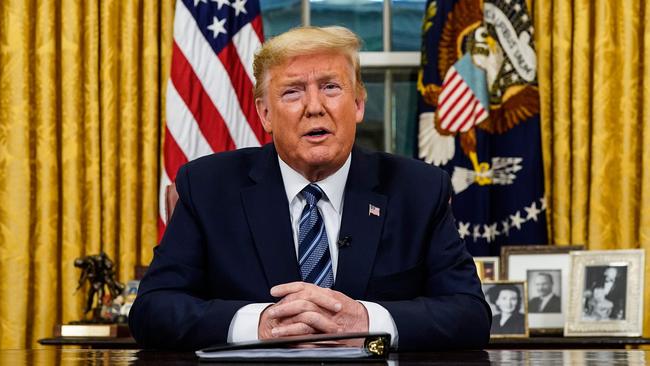
Trump still said a lot of things I disagreed with. He talked about particular women he didn’t like in a disgraceful way and he sometimes generalised about whole classes of immigrants, such as Mexicans, in a demeaning fashion. He was needlessly divisive.
I make my living by words. I cherish them and take them seriously. As that great existential philosopher John Wayne once remarked: “Words are what men live by.”
But the journalistic question was this: should I dismiss all his actions because I gravely disliked some of his words? I decided to pay more attention to Trump’s actions than his words, partly because his words were so imprecise, changeable, at best a rough guide to his thinking.
Treating actions as more important than words is common in Asian diplomacy but for opposite reasons. In Asia, diplomatic words are often formal, ritualistic, meaningless. Actions count.
Other complications arise in evaluating Trump. He’s a populist, but a rational populist. Stronger defence, better trade agreements, more manufacturing, strong borders, lower corporate taxes to create jobs — these instincts can lead to coherent policies which should be assessed on their merits.
The Trump presidency has seen the alchemy of the US machinery of government transforming presidential instinct into viable policies. Trump delivered much that he promised and is the first president since Jimmy Carter not to initiate a major US military intervention. If as a writer all you do is condemn Trump, you don’t evaluate the policies intelligently. You’re not really doing your job.
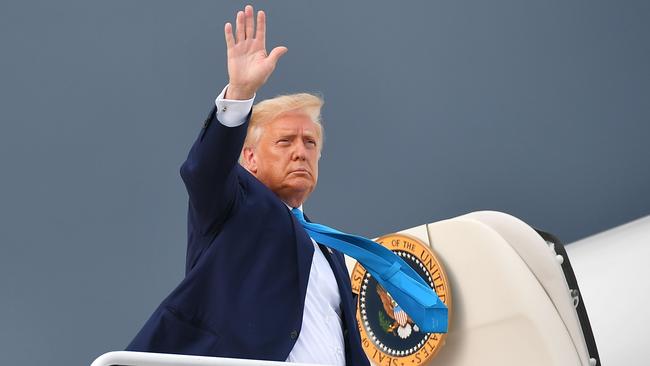
Another complication is this: as bad as some of what Trump says is, many of his enemies tell lies about what he says, or at best don’t check. He’s often verballed.
Concerning the famous Charlottesville demonstration pitting left wingers against right wingers over the proposed demolition of a statue of Robert E Lee, Trump said: “There were very fine people on both sides.”
Some of the people there were white supremacists. So anti-Trump commentators say Trump praised white supremacists. Joe Biden said Trump described neo-Nazis as very fine people. But in that same press conference Trump also said: “I’m not talking about the neo-Nazis and the white nationalists, because they should be condemned totally.”
An honest media commentator points out Trump’s falsehoods, and the falsehoods spread against Trump. In the Mount Rushmore speech Trump delivered a perfect liberal defence of a non-racial society, a strong condemnation of all racism. He also said America should have regard for its history. He didn’t mention Confederate symbols or flags. Yet CNN, and the New York Times nonetheless said Trump gave a dark speech championing Confederate symbols.
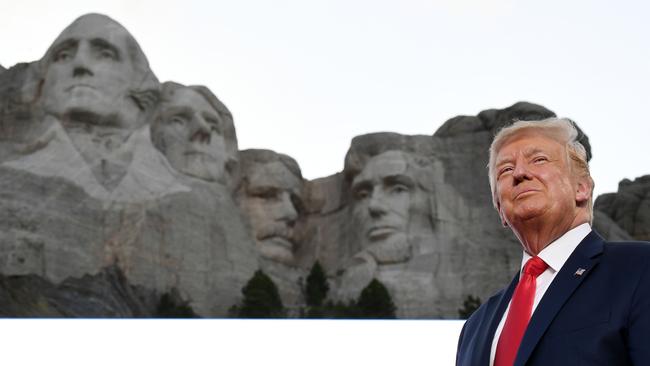
Many US media outlets have adopted “resistance” journalism. This is an absurd moral vanity and abandons basic professionalism. Powerful journalists style themselves as part of the “resistance” to Trump. This abolishes all distinction between fact and fiction and every report, even basic news, becomes an anti-Trump tirade to be judged mainly on its emotional intensity. CNN, whose reports are carried internationally, is now completely unreliable on basic facts about Trump.
Trump’s unconventional ways also make analysis challenging. On North Korea he irresponsibly threatened nuclear war, then gave Pyongyang’s dictator Kim Jong-un a series of summits. Trump falsely claimed this had removed the North Korean nuclear threat. That was just untrue. So you’re in trouble with Trump backers for pointing that out. However, at the end of Trump’s term, North Korea is not testing new nuclear weapons or ballistic missiles, and US sanctions have not been removed. So his outcome is about as good as that of any recent president, acknowledging which puts you in trouble with Trump haters.
Nor can a columnist put every qualification, every balancing criticism, in every article. Thus when I wrote about Joe Biden’s poor Democratic National Convention, some took me to task for not criticising Trump as well. But only a coupe of weeks before I had written a piece with the self explanatory title: “Trump’s strangest and most grotesquely untrue claim.” Trump supporters thought that column unfair.
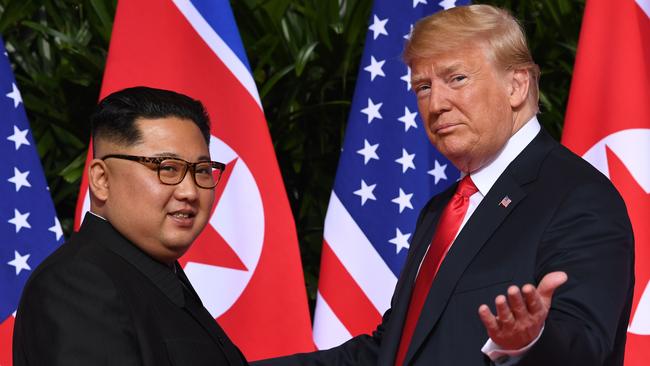
It’s easy for the one article to provoke criticism that it is globalist, anti-nationalist and anti-Trump, and simultaneously that it is mindlessly pro-Trump.
The Trump debate, even in Australia, is poisonously polarised. Partisans on both sides see it as good versus evil. But it’s not a journalist’s job to be on any politician’s side, only on the side of truth and good policy.
Any election is a binary choice. It’s not Trump versus some historically exemplary candidate — say Ronald Reagan or FDR. Four years ago it was Trump versus Hillary Clinton, and now it’s Trump against Joe Biden. Reasonable voters could go either way.
The hardest thing when writing about Trump is to maintain balance, not to be overwhelmed or intimidated by the abuse and double standards of his enemies, but also not to be unduly provoked by it. Trump is a magnificently rewarding subject. He justifies extravagant language, for which every scribbler with red blood has a weakness. Still, less emoting, more old-fashioned rational consideration, would serve the culture of politics, not to mention the profession of journalism, better.


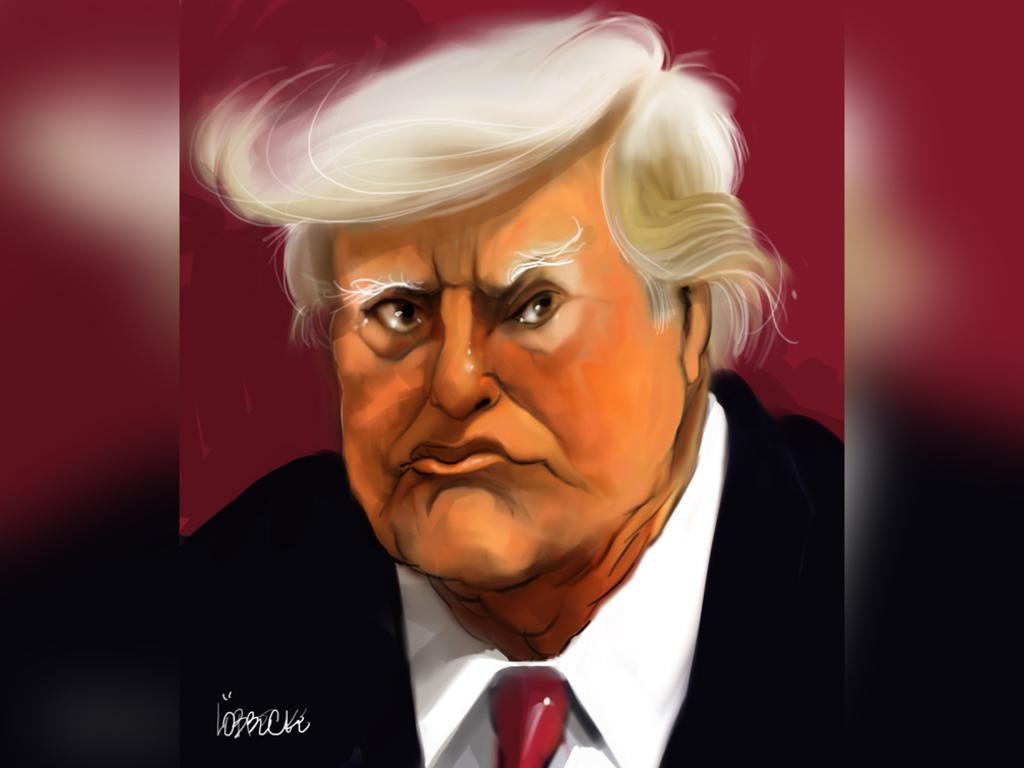
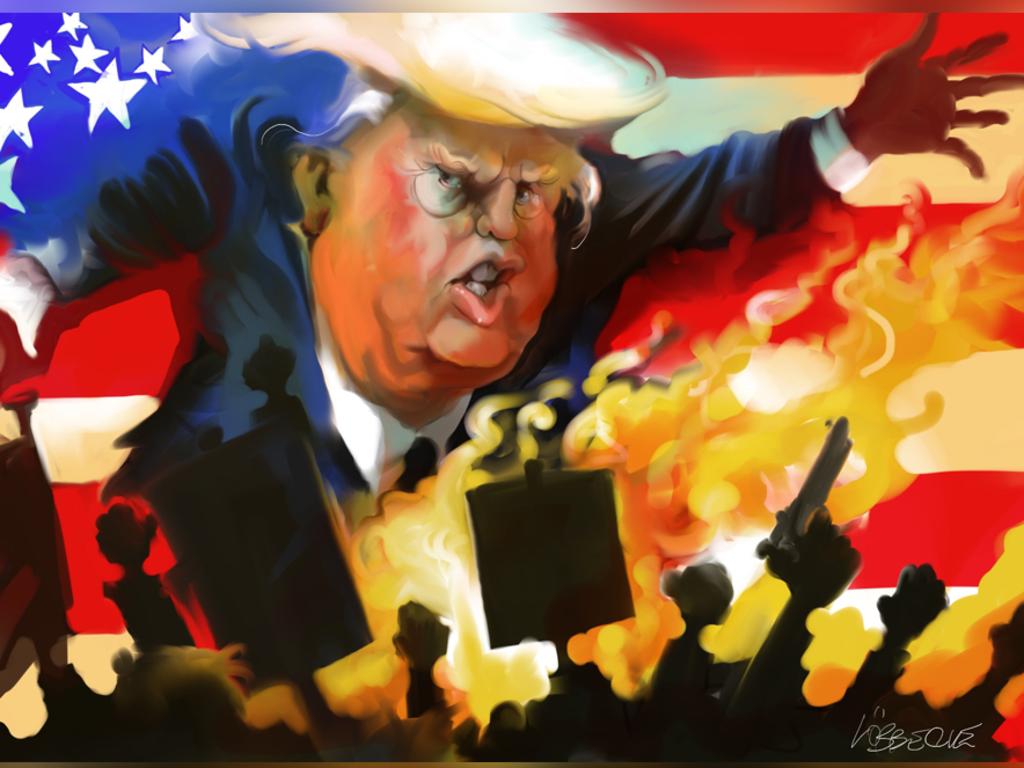
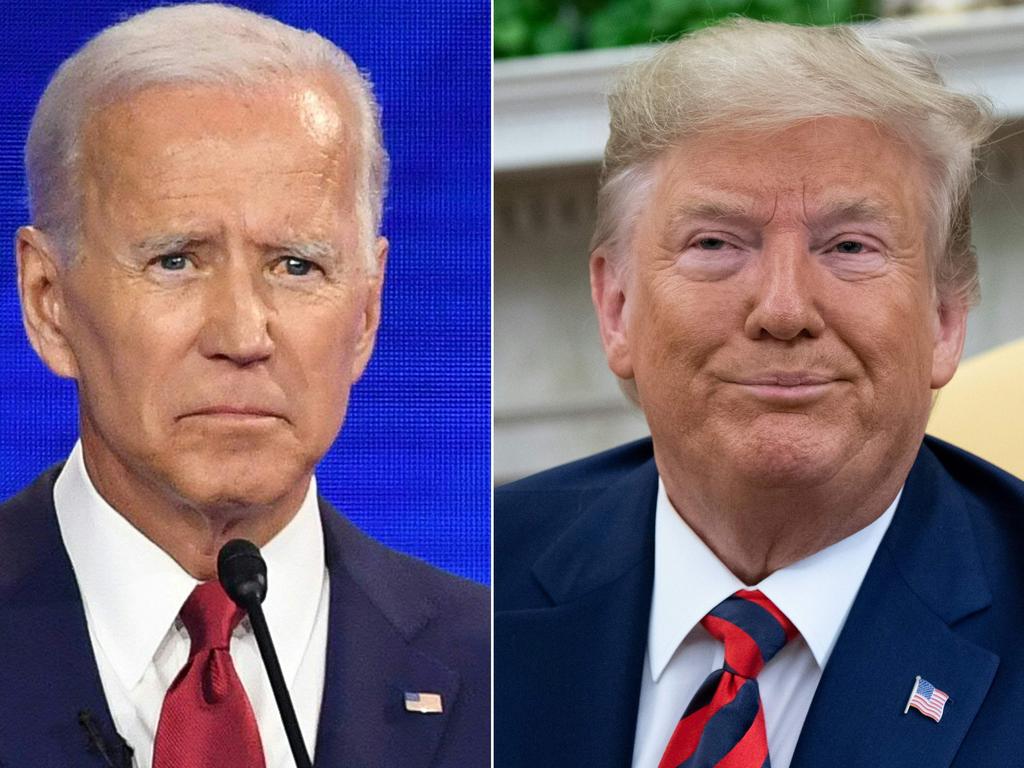
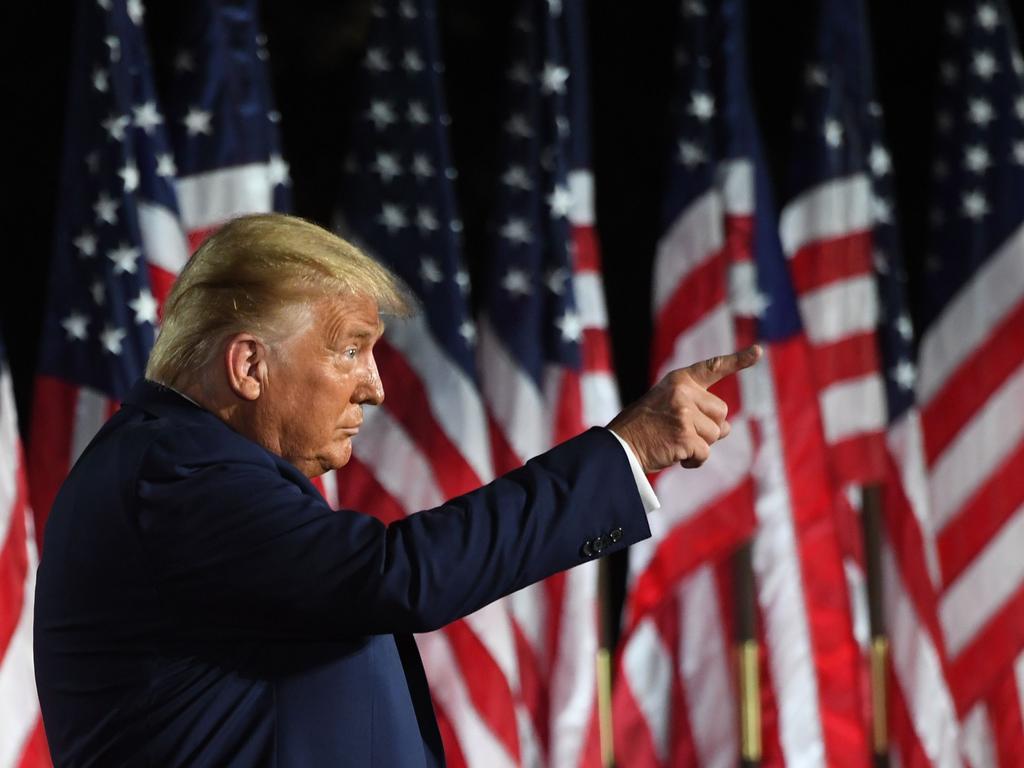


Is Donald Trump the dumbest man to be president, or the smartest? Maddeningly unpredictable or cunningly agile? Teller of unpalatable truths or compulsive liar?